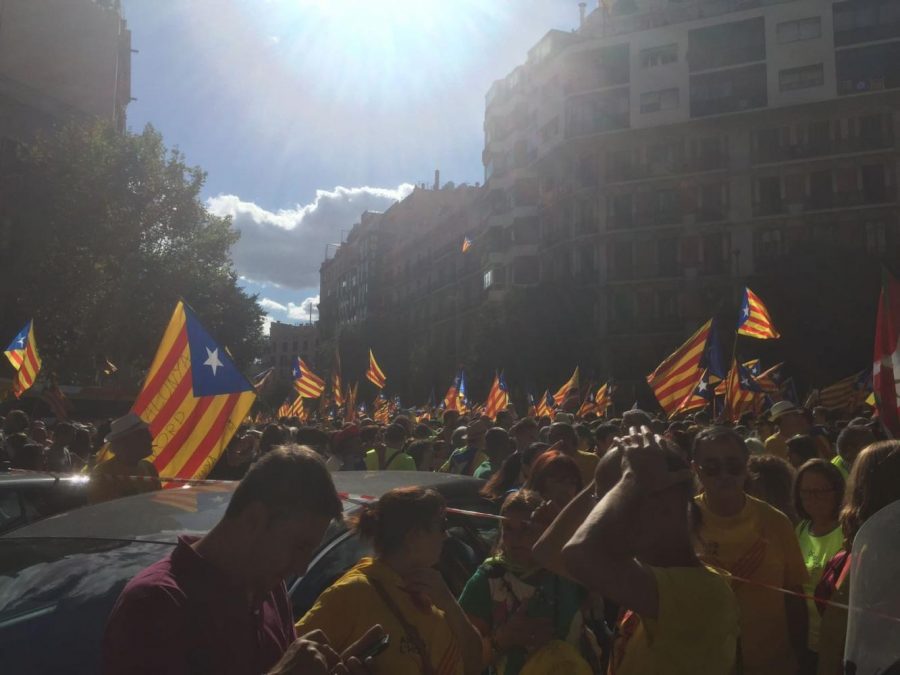 Scottish voters elected to stay within the United Kingdom last Thursday, temporarily putting to rest the issue of how many crosses should be on the British flag. The Unionist victory was not too surprising, considering the vast majority of pre-election polls predicted it, but the fact that 45 percent of Scots wanted to separate from the UK state says a lot about current attitudes regarding what it means to be a state.
Scottish voters elected to stay within the United Kingdom last Thursday, temporarily putting to rest the issue of how many crosses should be on the British flag. The Unionist victory was not too surprising, considering the vast majority of pre-election polls predicted it, but the fact that 45 percent of Scots wanted to separate from the UK state says a lot about current attitudes regarding what it means to be a state.
We Yanks tend to negatively view the word ‘secession’ after the Civil War. More than 600,000 Americans died in a conflict over whether or not states have the right to leave the Union, and due to one side’s close association with slavery, it is unlikely that American secession movements will gain traction any time soon.
Across the Atlantic, however, secession has become all the rage for a variety of European regions dissatisfied with the status quo. While the colonial borders of Africa and the Middle East are often cited as textbook examples of disparate groups living within the same borders due to some arbitrary act of history, it was in Europe that the term Balkanization was first applied. Since 1990, 15 of the 30 countries that became independent states (the number varies due to whether certain countries such as Russia should be considered separate from their predecessors) are in Europe. While some countries, including the Czech Republic and Slovakia, had an amicable divorce, the breakup of the former Yugoslavia sparked the first major war in Europe since World War II.
Even with the defeat of Scotland’s independence referendum, talks of independence in Europe persist. The regional parliament in Catalonia, an autonomous community of Spain, just passed a measure that would give the regional president the power to call a “consultation” vote regarding independence. Separatists in Belgium’s Dutch-speaking Flanders, Spain’s Basque Country, the German state of Bavaria and the French island of Corsica, among others, are now calculating their next moves. And in Eastern Ukraine, separatists have fought a bloody civil war with the objective of achieving independence, or union with Russia, for two provinces which they have dubbed “Novorossiya.”
When I asked my roommates from Barcelona, the capital of Catalonia, whether they considered Catalonia to be a nation, one of them explained it by saying “if Portugal is a country, and if France is a country, then why isn’t Catalonia?” Unlike in Scotland, only 50.7 percent of Catalonia usually converses in the national language. The rest mostly speak Catalan, which is actually closer to French than Spanish. Numerous cultural differences abound, and during the dictatorship of Francisco Franco, the Catalan language and culture were greatly suppressed. Even today, many Catalans feel the tax money they send to Madrid does not benefit Catalonia equally.
With the expansion of the European Union in both size and authority, it is somewhat ironic to see its member states break apart even as they become more integrated with the rest of the continent. However, at the heart of the issue is something that has been rather taboo in Europe since the end of fascism: nationalism.

Nationalists today seek to protect themselves from what they perceive to be threats to their unique culture. While some believe this is achievable through reforms such as federalization, others want to separate entirely, believing their current state governments do not represent them.
This phenomenon is also increasingly visible at the national level, with parties like France’s National Front and the United Kingdom Independence Party gaining ground in recent elections. The rise of these parties is like a response to what is considered the loss of national identity and sovereignty at the hands of the European Union and immigration from non-Western European countries.
With globalization increasing, it will be interesting to see how these nationalists fare as populations continue to diversify and borders become increasingly fluid. Still, it would be foolish to say that nationalism in Europe has died.




